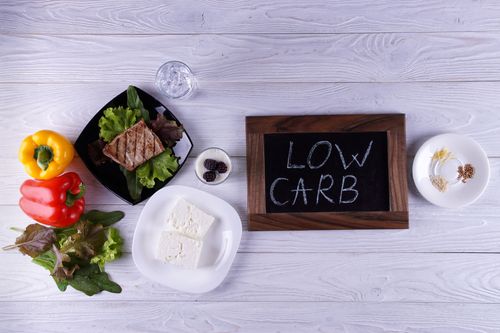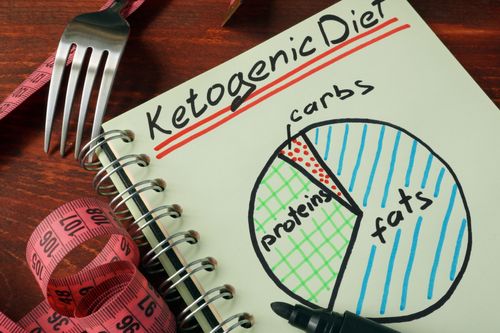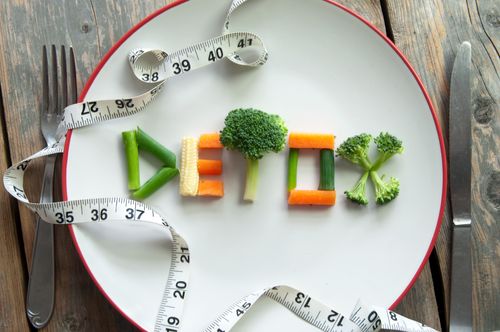Fad Diets and How They Affect Your Health?

Alpa Momaya
October 12, 2022

Alpa Momaya
October 12, 2022
As waistlines are getting thicker and thicker, we are constantly looking for quick fixes to battle the bulge. There are plenty of diets available whose advertising sounds too good to be true. The problem is, they are crash or fad diets that promote quick weight loss without taking into effect the nutrients your body needs.
Social media is flooded with fad diets, many of which work by drastically slashing calories, causing you more harm than good.
Still, why fad diets are plentiful, and there’s always something new to hook people? Because the fad diet is attractive, luring, and promises “magical results” in a short span of time, which is something we all want; a simple way to cut more inches.
If you have tried a fad diet earlier, you have plenty of company. But for most, it doesn’t work. The reason being fad diets might give quick short-term weight loss, but many are difficult to follow, have arbitrary rules, and a few could put your health in danger.
Some interesting facts about Fad diets
A fad diet is based on hype, not science, and probably has more to do with a marketing scheme, celebrity backing than studied proven effects. Fad diet involves eating high fat, low-carbs, or high-protein foods which promise a quick fix, like one magic food or combination of foods that can change your body chemistry.
Often fad diets may result in short-term weight loss for some people, but most times, the diets don’t deliver what they promise.
When you start a fad diet, you’re shocking your body into a routine it isn’t used to. By losing weight too quickly, you can send your body into survival mode. This comes in the form of slow metabolism, which should sound very unappealing to anyone trying to lose weight.
These extremely low-calorie fad diets also typically starve your body of the necessary nutrients, vitamins, and minerals that you need to function. Also, they have strict rules to adhere to.
Within a few weeks of depriving yourself of vital nutrients, you will probably end up binging on all unhealthy foods, resulting in more weight gain and doing harm to your body—the usual tale of fad diets.
Many fad diets gained fame in recent years. Some of them are effective, while some aren’t that much. But most of these have one thing in common: Stay away from your favorite food group, CARBS.

The Atkins Diet is the most well-known low-carb diet. It consists of 4 stages, including a first 2-week induction phase that reduces carbs to 20 grams a day while permitting unlimited amounts of protein and fat.
Believers of this diet can then gradually add their carbs in 5-gram increments to decide their critical carbohydrate levels for losing weight and maintaining the loss.
However, you indeed have to remain low carb for life, even if you have achieved your weight goals. Otherwise, you will gain back the weight you lost, which is almost real with any low-carb diet.

Keto is the most-hyped diet, which everybody has heard of. The concept is to eat very low carbs, moderate protein, and a very high-fat diet to lose weight.
The diet works by shifting your body in a state of ketosis for energy derived from the breakdown of fat in the body in the absence of carbohydrates as an energy source. This results in weight loss.
However, the problem arises because the diet is extremely rigid and difficult to follow. It puts additional stress on organs that need carbs as a primary fuel for energy. Shifting from glycogen to ketones is the mountain work itself and being on a low-carb diet for a prolonged time could prove dangerous and as well as not sustainable.

Detox diets, detox products are the buzzwords in the health industry. The idea underneath “detoxification” is that consuming these products will cleanse your body of “toxins”, and in turn, it helps to improve health and encourage weight loss.
Every day, at all times, our body has the ability to detoxify itself from all toxins with the help of detoxifying organs like the liver, kidney, and skin. We can help the process by eating more fiber-rich foods and by staying hydrated. Going on a juice diet or a raw vegetable diet isn’t necessary.

Vegan diets have been criticized for being unbalanced and extreme because they contain no animal products. Vegan diets can be healthy or unhealthy, depending on the food choices made.
It is unlikely that you will lose weight while being vegan if you don’t reduce your calories. You may want to be extra careful that you consume enough protein, iron, zinc, vitamin D, and calcium.
Vegans also have the potential to develop a B12 deficiency, which could potentially cause irreversible neurological effects.

The Paleo Diet is based on the diet that our ancestors ate thousands of years ago. The diet limits numerous food groups such as milk, legumes, and grains and promotes lean meats, fish, fruit, and vegetables.
Critics always pointed out that eating the same food as our prehistoric ancestors ate is not practical due to modern sedentary activity and lifestyle changes. Simultaneously, when saturated fat and protein are consumed far more than the recommended levels, it increases the risk of kidney and heart diseases.
A balanced nutritional Indian diet focuses on Lacto-vegetarian guidelines and stresses the importance of including grains, fruits, vegetables, lentils, good fats, dairy, and spices on the plate. Although it is okay to enjoy treats occasionally, limit the intake of sweetened beverages, fast food, and fried items.
Note: Below is a 7-day diet sample menu that contains three meals that focus on fresh, nutritious food. You can adjust it to the calories and food preferences of your choice.
Breakfast: Multigrain paratha with curd and sliced papaya.
Lunch: Mixed Vegetable salad + mix dal + aloo baingan tamatar ki sabzi + whole-grain roti.
Dinner: Low Fat Paneer curry + 1 Missi roti.
Breakfast: Apple cinnamon porridge cooked using milk and topped with almonds.
Lunch: Chole curry with brown rice and carrot onion salad.
Dinner: palak dal with curd and roti.
Breakfast: sprouts poha with curd.
Lunch: Whole grain Roti with soyabean nuggets & mixed vegetable salad.
Dinner: Palak paneer with brown rice, pulao with vegetables.
Breakfast: Plain Daliya with a glass of milk.
Lunch: Salad with rajma curry and quinoa.
Dinner: Soyabean nuggets with potato and mixed vegetables.
Breakfast: Mixed Sambar (1 bowl) + 2 Idlis.
Lunch: Curd + Palak Chole (1 bowl) + Steamed Rice (0.5 katori).
Dinner: Moong Dal vegetable khichdi with curd and green salad.
Breakfast: 2 large Besan Chilla with green garlic chutney.
Lunch: Vegetable sambar with brown rice.
Dinner: Sprout salad and vegetable dalia.
Breakfast: 1 cup of cooked oatmeal + 2/3 almonds + 2-3 raisins + 1 cup of low-fat milk
Lunch: Sabut mung curry + bhindi sabzi + roti.
Dinner: Stir-fried paneer with mixed vegetables and a fresh spinach salad.
Fad diets will always be there, and too-good-sounding plans will continue to entice people’s desire to lose weight fast on a scale.
Most fad diets are not sustainable, balanced, economical or practical for the majority of people. It could also reduce your health numbers and lead to serious health problems when continued for lengthy periods.
However, just because the diet is set for weight loss doesn’t mean it is the only way, or the best way, to go with.
To achieve long-lasting health goals, you need to choose a healthy way of eating that you can enjoy and adhere to for a lifetime. Not for a week or two.
A. Food-specific fad diets rely on the assumption that certain foods have specific properties which could trigger weight gain or loss – but actually, no food can. Successful sustainable weight loss is all about lifestyle changes, not short-term fads. By following fad diets, you will most likely gain/lose to the original from wherever you start.
A. If you follow a fad diet for several years, then because of a drastic reduction in calories, the body goes into starvation mode and feels it has to survive on a reduced-calorie diet. Then when you roll back to a regular diet, the weight piles up. This not only unbalances the metabolism but also depletes your wallets.
A. No. If you consume less food in a given time, your weight will go down, but that’s often only a temporary result, and you can be doing more harm than good. When you’re this hungry, your body craves high in fat and sugar foods. So rather than skipping meals, try to eat multiple smaller meals throughout the day and swap out bad snacks for healthier options.
A. As every mother around the world says, eat your vegetables, eat fruits, and your body will thank you later. Indeed, fruits and vegetables are known to have high fibre, vitamins, minerals, and phytonutrients that your body needs to function optimally. Nearly every diet can help you achieve your body goals when calories are properly managed, while not limiting your food options.
A. If you are short of nutrients and vitamins and limiting them due to the restrictions placed from a fad diet, then it may have long-term ill effects related to the nutrient deficiency. That may include anemia, bone diseases, depression, and more. This is enough reason to avoid going on a severe calorie restriction diet and occupying healthy ways.

